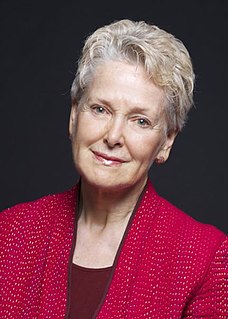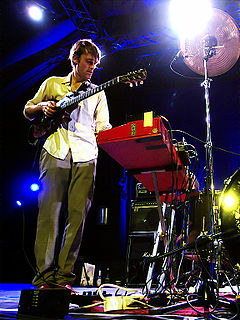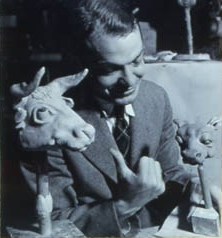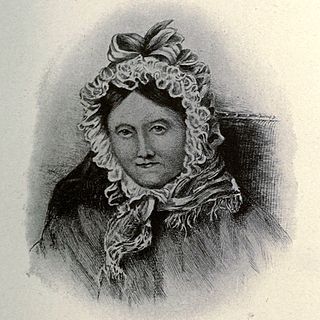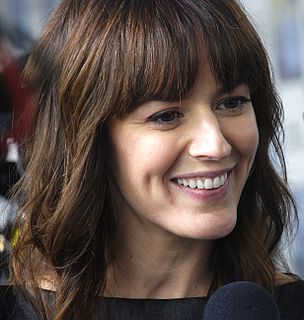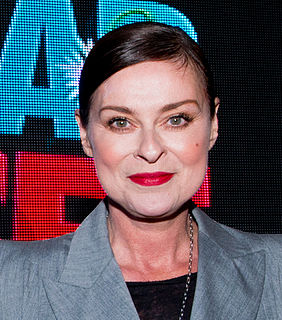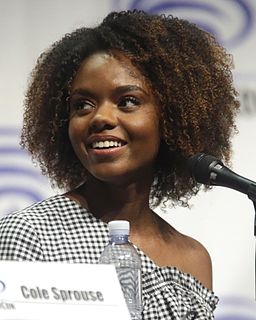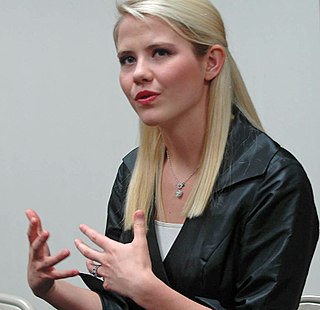A Quote by Swanee Hunt
Women know what kinds of laws can really be implemented. I loved in the film where the woman was talking to the other women about what it was going to be like when they were married. And she was saying, "Now, don't you think that just because the mother gave your husbands that cow that it's just his cow."
Related Quotes
It's like that Simpsons joke - they're filming a cow in a movie and they go, 'OK, we'll tape a bunch of cats together to make a cow', and it's like, 'Why don't you just use a cow?'. For some reason that is novel - like, 'Oh, my guitar sounds like a piano and now if I can just get my piano to sound like my guitar'.
I was a young feminist in the '70s. Feminism saved my life. It gave me a life. But I saw how so much of what people were saying was not matching up with what they were doing. For example, we were talking about sister solidarity, and women were putting each other down. We were talking about standing up for our rights, and women weren't leaving abusive relationships with men. There were just so many disconnects.
It turns out that a lot of women just have a problem with women in power. You know, this whole sisterhood, this whole let's go march for women's rights and, you know, just constantly talking about what women look like or what they wear, or making fun of their choices or presuming that they're not as powerful as the men around. This presumptive negativity about women in power I think is very unfortunate, because let's just try to access that and have a conversation about it, rather than a confrontation about it.
I talked to my mother about it a lot. I asked her what it was like to grow up in New York and Harlem in the 1920s and 1930s, and I asked her about a woman leaving her husband. I asked her about how she would feel about that woman, and my mother grew up in the Church Of God In Christ, and she told me that the woman might be isolated because the other women thought she might go and come after their husbands. That's how they thought then.
I started a writing class, not in service of writing a script or writing anything specific. I've just really been enjoying that, and oddly the group, not by design, but it just happened to be all women, and there were three women who gave birth this fall while we were all in class, and there's just something really great about getting to know these women through their stories and what they're writing about.
Women sometimes really love to look at other beautiful women on the screen. But they don't look at a woman the way a man looks at a woman. They want to be that woman. They like if a woman is beautiful or sexy, especially if she's powerful. They like to see her catch a man, or to be powerful in the world. I think this is why a lot of women love noir films and classic films because they can really identify with these really strong, beautiful women. That's the kind of power that women have lost culturally.
I think women were just accepted more as songwriters when they sat on a stool with a guitar and had scruffy hair. It was quite insulting really, because it was like saying that if you're pretty and slim and glamorous there's no way anything could be going on between your ears, you just like doing your makeup.
My mother is gay. She was married to my dad up until I was 9. She was just like, 'I'm tired of this. I'm just going to be with who I want to be with.' So I've been raised by women, through my mom and also my aunt. My aunt is bi, and most of her partners have been women. I was always surrounded by a very strong tribe of people.
She took a bad tumble. Those are some nasty bruises she's carrying," the maid said with a sad shake of the head. "Aye," Cullen agreed, his eyes traveling over lovely, milky white skin, interrupted by several black bruises. "She looks like a cow." Mildrede turned a horrified gaze on him at the comment, but he was more concerned by the choked sound that came from his bride. He really hadn't meant it as an insult, but it seemed the women were taking it so. "I just meant the coloring," Cullen muttered
It just struck me as really odd that there were all of these conversations going on about what young women were up to. Were young women having too much sex? Were young women politically apathetic? Are young women socially engaged or not? And whenever these conversations were happening, they were mostly happening by older women and by older feminists. And maybe there would be a younger woman quoted every once in a while, but we weren't really a central part of that conversation. We weren't really being allowed to speak on our own behalf.
Katherine Johnson never complained, it just was what it was. She just said, "I just wanted to go to work and do my numbers." And she stopped right there. I think about that as a Black woman in Hollywood when I'm asked about diversity. I hate when people say diversity because the first thing you jump to is Black and white. When you talk about diversity, you're talking about women being hired in front of and behind the camera. You are talking about people with disabilities, the LGBTQ community...so I hate when people think about diversity.
Once upon a time there was a woman who was just like all women. And she married a man who was just like all men. And they had some children who were just like all children. And it rained all day. The woman had to skewer the hole in the kitchen sink, when it was blocked up. The man went to the pub every Friday, Saturday, and Sunday. The other nights he mended his broken bicycle, did the pool coupons, and longed for money and power. The woman read love stories and longed for things to be different. The children fought and yelled and played and had scabs on their knees. In the end they all died.
